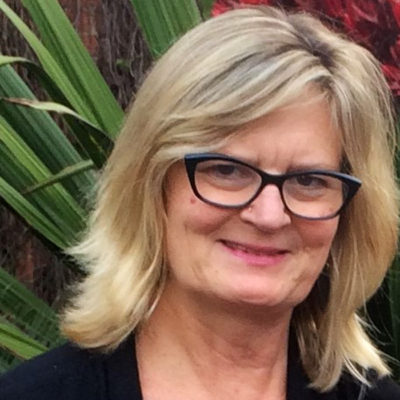
Marina Morrow
Marina Morrow
Realizing Human Rights and Social Justice in Mental Health
Canada, Kenya and Australia are all signatories to the UN Conventional on the Rights of People with Disabilities (UNCRPD), and yet many of the routine practices of mental health care in these countries violate the convention (Brophy, Ryan, & Weller, 2018; Pũras, 2017). Coercive practices are mediated through stigmatizing attitudes and discriminatory behaviours and the use of mechanisms like involuntary detainment and treatment that undermine self-determination and human rights (Edan et al., 2019; Pũras, 2017). Racialized and Indigenous populations are disproportionately impacted by mental health human rights violations (Kisely, Moss, Boyd, & Siskind, 2019). In partnership with service user-led organizations in three countries—Canada, Kenya and Australia (Eviance, Users and Survivors of Psychiatry Kenya & VMIAC) this research is:
- Summarizing existing evidence on human rights violations in mental health care to identify barriers and facilitators of equity.
- Identifying underlying values and assumptions in mental health policies which facilitate or undermine the promotion of equity and human rights.
- Documenting a diverse range of service users’ experiences with involuntary detainment/treatment and other coercive practices in four urban centres in Canada, Kenya and Australia.
- Identifying recovery-oriented, service user-led and user-involved organizations that provide community-based mental health care services, supports, resources, and advocacy for human rights in mental health.
- Developing a framework for ensuring equity and human rights in community-based mental health care based on all evidence.
- Engaging in knowledge mobilization that will build student and service user research capacity and share research findings with a range of relevant audiences to ensure uptake.
The framework we develop will be used to inform policies and practices in order create more just and equitable mental health resources and supports. For more information our website will come online in 2022: socialjusticeinmentalhealth.org
Tamara Daly
Addressing critical knowledge gaps, we investigate how culture and gender matter in creating age-friendly cities. Our goal is to enhance the effectiveness of age-friendly practices in light of demographic shifts associated with both population aging and diversity. We ask: how can age-friendliness support conditions in which all seniors not only maintain healthy active lives, but can participate and create meaning in later life? Our attention to gender draws us to investigate how inequalities and differences between and among women, men and non-binary people play out in seniors’ lives and policy assumptions. Our approach to culture assumes diversities due to global migrations; imperatives for Truth and Reconciliation with indigenous peoples; intra-cultural gender roles; and rich community cultures among people with disabilities and LGBTIQ2S groups, which affect what it means to grow old with dignity and respect. We investigate what makes age-friendly communities promising places with “promising practices” for women, men and non-binary people; those living in poverty; LGBTIQ2S, ethno-racial, indigenous, disability and Dementia communities; families who require specific supports and services; and those who support seniors, especially migrants and domestic carers, who are aging on the job. We recognize that seniors are a mobile population, moving across neighbourhoods and the globe for many reasons, from fleeing persecution to downsizing. For more information please visit our site: imagine-aging.ca.


Liane R Ginsburg
Liane R Ginsburg
Implementing Complex Interventions Designed to Improve Care in Nursing Homes
Interventions designed to improve healthcare delivery or outcomes often fail or have limited success. Unsuccessful interventions waste resources and fail to improve care delivery. Improving implementation efforts in nursing home (NH) settings is needed given scarce resources and concern over cost, quality and sustainability of care for frail older adults. We conducted a couple of interventions designed to improve care in nursing homes including an in-depth concurrent mixed-methods process evaluation of one of these trials—the Safer Care for Older Persons in residential Environments (SCOPE) trial. SCOPE is a year-long intervention that aimed to teach healthcare aide (HCA) led teams to implement improvement initiatives based on best practice guidelines. A total of 31 Canadian NHs participated in this intervention and the process evaluation. A mixed-methods exploratory sequential design was used to develop a conceptual model illustrating how teams, led by Care Aides (PSWs in Ontario) implemented the complex intervention and how the intervention produced change.
Our findings suggest that frontline-led teams can implement complex interventions and that implementation is facilitated by engagement with core technical components of an intervention AND by supportive leadership that creates an environment for resilient teams with positive dynamics and low levels of conflict. Implementation is also facilitated by shifts in role perceptions and power differentials such that genuine engagement and empowerment of HCAs builds efficacy, enhances trust among them and with their professional and managerial colleagues, and helps shift work from task orientation to critical reflection on the care process. Finally, intervention acceptability and perceived outcomes (HCA perceptions of benefits to resident care) are both important for facilitating intervention implementation, achieving buy-in from non-SCOPE team members, and spreading the intervention.
This work is situated in the field of implementation science which focuses on the application and integration of research evidence into practice and policy. It is one one of few longitudinal process evaluations looking at implementation trajectories – shedding light on both implementation processes and outcomes.

Learn More
The Graduate Program in Health at York is an exciting environment to pursue innovative, socially engaging, career-ready education. Contact our Graduate Program Assistant to learn more.
